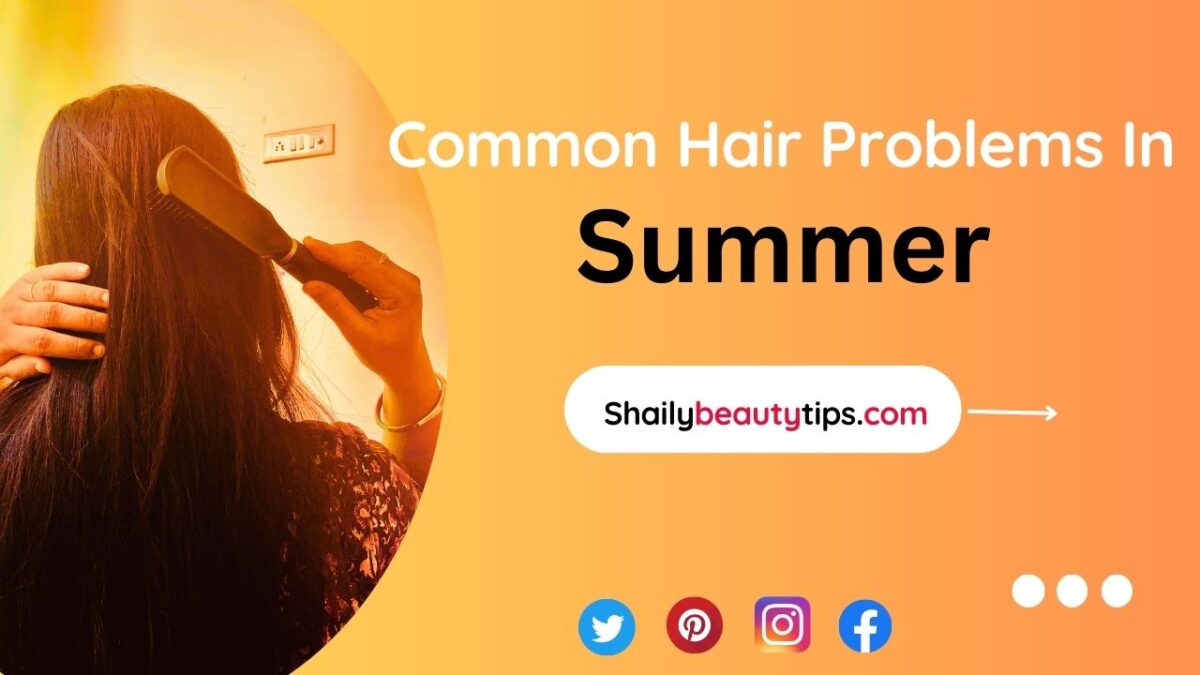During the summer, several common hair problems can arise due to various factors such as heat, humidity, sun exposure, and increased outdoor activities. Here are some of the most common hair problems people experience in the summer:
- Frizz: High humidity levels can cause the hair to absorb moisture from the air, resulting in frizz and unruly hair. The excess moisture causes the hair cuticle to swell and leads to the hair strands becoming unmanageable.
- Dryness: Exposure to the sun, saltwater, and chlorine from swimming pools can strip the hair of its natural oils, leaving it dry and brittle. Additionally, frequent washing and use of harsh hair products can further contribute to dryness.
- Sun Damage: The sun’s UV rays can cause damage to the hair shaft, leading to weakened hair, color fading, and loss of shine. Prolonged sun exposure without protection can result in dry and damaged hair.
- Scalp Issues: Sweat, heat, and increased outdoor activities can lead to scalp problems such as itchiness, oiliness, and dandruff. Excessive sweating and lack of proper scalp hygiene can create an environment for bacteria and fungus to thrive, causing scalp irritation.
- Chlorine and Salt Damage: Swimming in chlorinated pools or saltwater can damage the hair. Chlorine strips the hair of its natural oils, making it dry and prone to breakage. Saltwater can have a similar effect, leaving the hair feeling rough and tangled.
- Faded Hair Color: If you have color-treated hair, exposure to the sun can cause your hair color to fade faster. UV rays can oxidize the hair dye molecules, resulting in color fading and a less vibrant appearance.
To address these common hair problems in summer, consider the following tips:
- Protect your hair from the sun by wearing hats or scarves and using hair products with UV protection.
- Keep your hair and scalp hydrated by using moisturizing shampoos and conditioners.
- Use leave-in conditioners or hair oils to combat dryness and add moisture to the hair.
- Minimize heat styling and allow your hair to air dry whenever possible to reduce damage.
- Rinse your hair with fresh water before swimming to minimize chlorine or salt absorption.
- Practice good scalp hygiene and use gentle cleansers to prevent scalp issues.
- Consider using hair masks or deep conditioning treatments to restore moisture and repair damage.
- If you have color-treated hair, use products specifically formulated for color protection and avoid excessive sun exposure.
Remember, everyone’s hair is unique, so it’s important to find what works best for your hair type and address any specific concerns you may have. If you’re experiencing persistent hair problems, consulting with a professional hairstylist or dermatologist can provide personalized advice and solutions.


